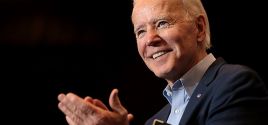The Three Industries That Love The TPP: Hollywood, Big Pharma & Wall St.by Mike MasnickTechdirt Nov. 10, 2015 |
Popular 
Biden Commutes Sentences of 37 of 40 Federal Death Row Inmates - Excludes Robert Bowers, Dylann Roof

U.S. 'Shoots Down Own Jet' Over Red Sea in 'Friendly Fire Incident'

Ohio Senate Passes Bill Aimed at Outlawing Criticism of Israel, Criminalizing Gospel

Putin Accuses 'Ethnic Jews' of Tearing Russian Orthodox Church Apart

Saudi National Rams Car Into Germans at Christmas Market in Suspected Terrorist Attack [UPDATED 2X]
 Tons of people seem (quite rightly) concerned about the Trans Pacific Partnership (TPP) agreement. As we pointed out last week after the final text was finally, released, the agreement has a lot of really big problems. But if you want to understand just how bad the agreement is, perhaps you should just look at the industries that like it. Vox notes that Big Pharma and Hollywood love the agreement while The Intercept notes that Wall Street loves it. It should be noted that, actually, Big Pharma is apparently a bit disappointed that the TPP doesn't go far enough in locking up exclusivity for biologics. That said, talk about three of the most hated industries around: Hollywood, Big Pharma and Wall Street. But, more importantly, talk about three of the most protectionist, anti-free trade industries around. We've been repeating over and over again that the TPP is not a free trade deal and this should be more confirmation. Hollywood, Big Pharma and Wall Street are probably three of the biggest industries to rely heavily on government regulations as a way to limit competition, limit innovation and to use that exclusivity to artificially increase prices at the expense of the public. And they like the deal. That's because it's not a free trade deal at all. It's not about "taking away" barriers to trade, it's about building bigger barriers in the form of protectionism to protect big, legacy industries from innovation and competition. Of course, it's no surprise that Hollywood, Big Pharma and Wall Street are also three of the most powerful lobbying industries in Washington DC, because when you can no longer innovate, and you rely on government protectionism, you focus your efforts on "political entrepreneurship" -- better known as getting the government to protect you from real entrepreneurship. So, no wonder the USTR went this direction. They only hear from these kinds of industries, and the end result is a fake free trade agreement that is designed to do the exact opposite. It's designed to build up barriers to protect old, stodgy industries who have relied on protection from competition from decades, and don't want to see that dissolve against foreign competition. |



